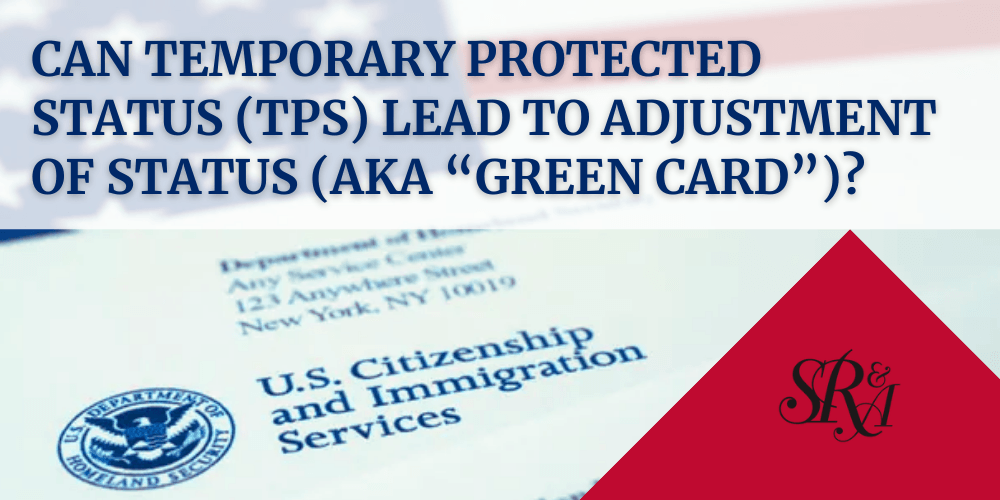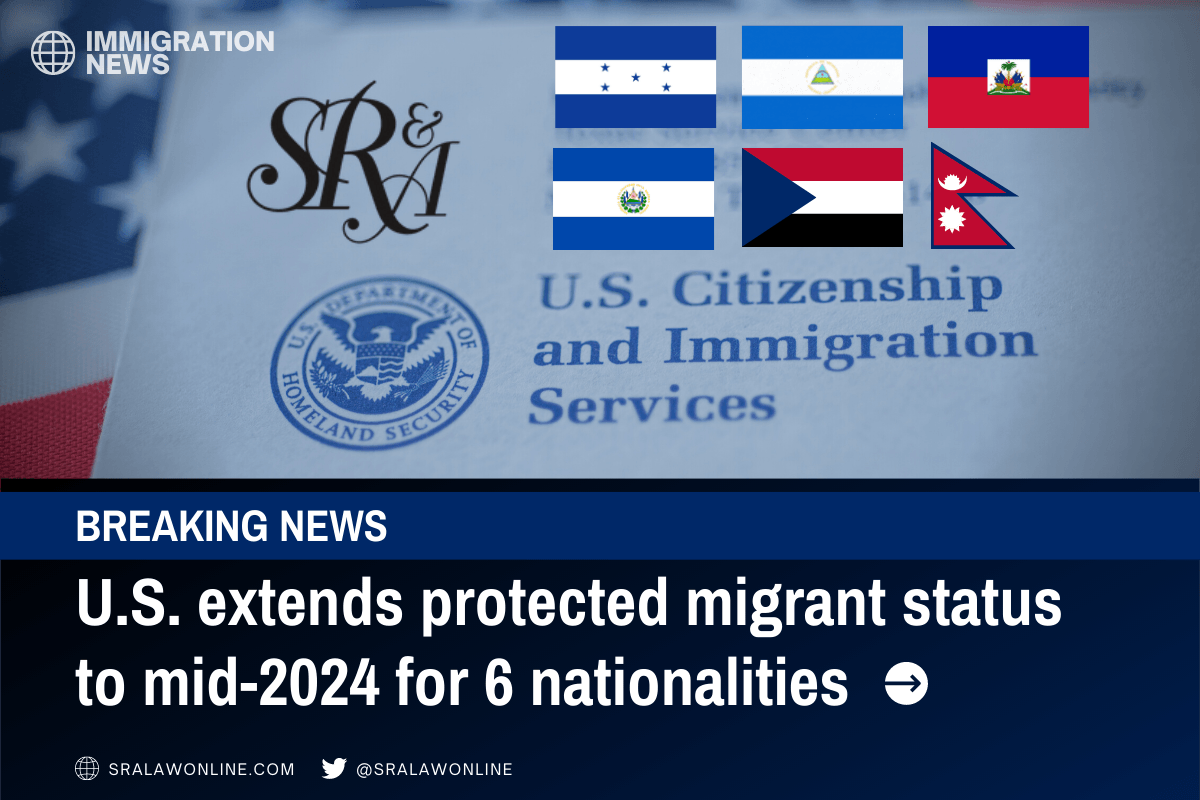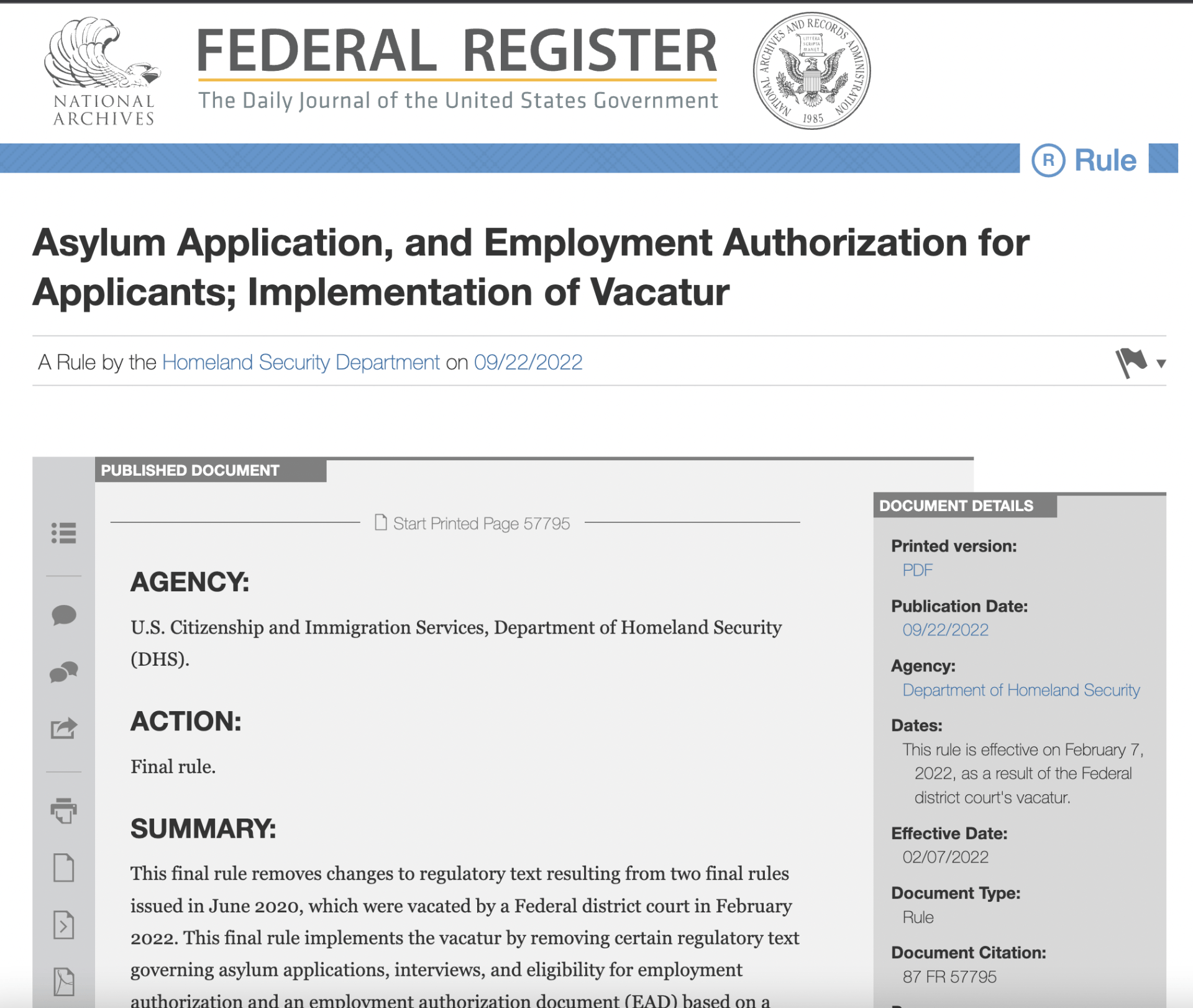Can Temporary Protected Status (TPS) Lead to Adjustment of Status (aka “Green Card”)?
Can TPS status lead to adjustment of status (a “green card”)?
This year the U.S. Supreme took on a case involving an employment-based application for a green card or an adjustment of status for a couple who have Temporary Protective Status (TPS). The Court decided in Sanchez v. Mayorkas, 593 U.S. ___ (2021) that someone in TPS status who originally entered the US without inspection (illegally) cannot adjustment status.
The issue is not whether TPS alone can lead to a green card. TPS is a temporary status providing individuals from certain designated countries to live and work in the United States. TPS is a humanitarian immigration policy for foreign nationals in the United States who cannot return to their home countries because of armed conflict, natural disaster, pandemic, or similar extraordinary conditions. See, 8 U.S.C. 1254(a) Recently, Venezuelans in the United States were allowed to apply for TPS. Others, such as Salvadorans, have had the ability to maintain TPS status for years.

Prior to this decision several federal circuits courts were split as to whether a TPS recipient could adjust status to a legal permanent resident based on a qualifying family relationship or qualifying employment petition. The US immigration laws allow for individuals who have been “inspected and admitted or paroled into the United States”
to adjust status in the United States. INA 245(a); 8 USC §1255(a) The argument was that by submitting an application for Temporary Protective Status and having that application adjudicated and approved, the TPS recipient had been “admitted and inspected” as required by law. To support that argument, TPS recipients pointed to the TPS law itself which states:
“(f)Benefits and status during period of temporary protected status During a period in which an alien is granted temporary protected status under this section—
(4) for purposes of adjustment of status under section 1255 of this title and change of status under section 1258 of this title, the alien shall be considered as being in, and maintaining, lawful status as a nonimmigrant.” (Emphasis added) 8 USC §1254(a)(f)(4)
In the Third, the Fifth, and Eleventh Circuits the decision was that TPS does not fulfill the requirements of being admitted and inspected. In the Eleventh Circuit the court determined that “’lawful status as a nonimmigrant’ for purposes of adjusting his status does not change §1255(a)’s threshold requirement that he is eligible for adjustment of status only if he was initially inspected and admitted or paroled.”
Serrano v. United States Attorney General, 655 F. 3d 1260, 1265 (11th Cir. 2011) (per curiam). In our own Fifth Circuit the court determined that there is no “fictional new entry” created by the grant of TPS.
Melendez v McAleenan, 928 F. 3d 425, 427-429 (5th Cir. 2019)
cert. denied,
140 S. Ct. 561 (2019). In June 2021, the Supreme Court agreed that the grant of TPS does not cure the initial unlawful entry and therefore, a TPS holder cannot adjust status in the United States.
However, in a footnote in
Sanchez v. Mayorkas,
the Supreme Court did clarify that they had not addressed the issue of whether a TPS holder who had traveled and returned with advance parole would be eligible for adjustment of status. This is an important point in this matter.
Those who have been granted Temporary Protective Status have the ability to apply for advance parole, which is permission to return to the United States after travel abroad. Section 245(a) of the Immigration and Nationality Act states that those who are allowed to adjust status are individuals who were “inspected and admitted or paroled into the United States”. It makes sense that if a TPS holder has traveled and returned with an advanced parole that they should be eligible to adjust status.
However, starting sometime around 2019 some USCIS field offices began to deny adjustment of status applications for TPS holders who had traveled and returned on an advance parole. In some instances, Legal Permanent Residents who had TPS and adjusted status based on travel on an advance parole were being issued denials of naturalization. The naturalization denials were being issued with Notices to Appear based on findings that LPR status was procured unlawfully!
Instead, USCIS began to cite MTINA §304(c) as the basis for their denials which states:
(1) In the case of a[] [noncitizen] described in paragraph (2) [covering, inter alia, TPS beneficiaries] whom the Attorney General authorizes to travel abroad temporarily and who returns to the United States in accordance with such authorization-
(A) the [noncitizen] shall be inspected and admitted in the same
immigration status [he or she] had at the time of departure
if-
(ii) in the case of a[] [noncitizen] described in
paragraph [(c)](2)(B) [TPS beneficiaries], [he or
she] is found not to be excludable on a ground of
exclusion referred to in section 244A(c)(2)(A)(iii)
of the Immigration and Nationality Act ....
MTINA § 304(c), Pub. L. No. 102-232, 105 Stat. at 1749 (emphasis added)
The interpretation offered by USCIS in issuing the Denials and Notices of Intent to Deny is that when a TPS holder departs the US with a § 244(f)(3) advance parole they return to the US in the same status they had prior to departure – but, meaning that they revert to the status they had when they first entered the United States. The USCIS Policy Manual, vol. 7, pt. B, ch. 2, § A.5 states:
“Since the purpose of Section 304(c) of the Miscellaneous and Technical Immigration and Nationality Amendments Act of 1991 (MTINA) is to return the TPS beneficiary to the “same immigration status the alien had at the time of departure,” this provision of MTINA “cannot be interpreted to put TPS recipients in a better position than they had been upon their physical departure from the United States[.] The TPS beneficiary’s travel and return “does not alter their immigration status for purposes of adjustment of status[.]””
It continues to state that a § 244(f)(3) advance parole is a matter of an administrative convenience – a form of maintaining a record of arrival:
“When
DHS provides prior consent to a TPS beneficiary for his or her travel abroad, it documents that consent by providing an advance parole document (Form I-512) to the alien, as required by regulation. DHS issues an advance parole document for this purpose solely as a matter of administrative convenience. TPS travel authorization is unique and affords the TPS beneficiary only what is provided for under MTINA by restoring the alien to “the same immigration status the alien had at the time of departure.” The travel authorization for the TPS beneficiary allows the alien “to return to the United States in a procedurally regular fashion after foreign travel[.]” However, “[a] status quo ante return cannot create a condition needed to establish eligibility for a benefit for which the alien” would not have been eligible at the time of departure. TPS beneficiaries who depart and return to the United States with the prior consent of DHS pursuant to INA 244(f)(3) are neither admitted nor paroled upon return, but simply resume the same immigration status they had before departing. “The same immigration status” encompasses not only that status of an alien who may be present without inspection and admission or inspection and parole, but all other legal incidents of status, such as an alien’s status in deportation, exclusion, or removal proceedings.”
On August
20, 2020 USCIS issued Policy Memorandum, PM-602-0179
Matter of Z-R-Z-C-, Adopted Decision 1010-02 (AAO Aug. 20, 2020) addressing the issue of TPS holders who depart on an advance parole and apply for adjustment of status. In the PM, USCIS adopts the AAO decision which continues to interpret MTINA § 304(c) as TPS holders being present in the US without inspection and admission or parole. Furthermore, upon return on advance parole they revert to the status they had when they departed – present without inspection, admission or parole. However, the Z-R-Z-C- Memo ends by stating that it is prospective in its application and allows for the adjustment of status of TPS holders who traveled on advance parole prior to the date of the issuance of the PM on August 20, 2020:
“Recognizing TPS recipients’ reasonable reliance on USCIS’s past practice and treatment of temporary travel abroad, USCIS will limit the application of Matter of Z-R-Z-C- to minimize adverse impacts to this group. Matter of Z-R-Z-C- does not impact TPS recipients who adjusted status to lawful permanent residence under the past practice and/or prior guidance. Such aliens, when applying for naturalization, will not be subject to section 318 of the Act for not having been lawfully admitted as a permanent resident.
In addition,
Matter of Z-R-Z-C-’s holding that a return to the United States pursuant to TPS travel authorization does not satisfy section 245(a) of the Act will only apply prospectively to TPS recipients who departed and returned to the United States pursuant to section 244(f)(3) of the Act after the date of this Adopted Decision.”
Id. at 1-2
Whether a TPS recipient is eligible to adjust status having entered with an advance parole continues to be a question of where you live in the United States and your Circuit Court’s views TPS status. Complicating the situation are those who were issued orders of removal or granted Voluntary Removal and were subsequently given TPS status. Can those individuals adjust status if they traveled with advance parole? In the past, we were able to adjust their status. Today, depending in which Circuit you reside the answer will vary. It is always best to consult with a highly experienced immigration attorney who understands the complexities of this issue.








